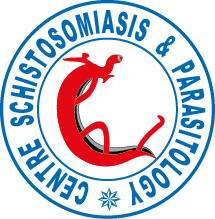Mapping of schistosomiasis and soil-transmitted helminthiasis in the regions of Littoral, North-West, South and South-West Cameroon and recommendations for treatment
Abstract
Background
The previous nationwide mapping of schistosomiasis and soil-transmitted helminthiasis (STH) in Cameroon was conducted 25 years ago. Based on its results, mass drug administration (MDA) of praziquantel was limited to the three northern regions and few health districts in the southern part of Cameroon. In 2010, we started the process of updating the disease distribution in order to improve the control strategies. Three of the ten regions of Cameroon were mapped in 2010 and the data were published. In 2011, surveys were conducted in four additional regions, i.e. Littoral, North-West, South and South-West.
Methods
Parasitological surveys were conducted in March 2011 in selected schools in all 65 health districts of the four targeted regions, using appropriate research methodologies, i.e. Kato-Katz and urine filtration.
Results
The results showed significant variation of schistosomiasis and STH prevalence between schools, villages, districts and regions. Schistosoma haematobium was the most prevalent schistosome species, with an overall prevalence of 3.2%, followed by S. mansoni (3%) and S. guineensis (1.2%). The overall prevalence of schistosomiasis across the four regions was 7.4% (95% CI: 6.7-8.3%). The prevalence for Ascaris lumbricoideswas 19.5% (95% CI: 18.3-20.7%), Trichuris trichiura 18.9% (95% CI: 17.7-20.1%) and hookworms 7.6% (95% CI: 6.8-8.4%), with an overall STH prevalence of 32.5% (95% CI: 31.1-34.0%) across the four regions. STH was more prevalent in the South region (52.8%; 95% CI: 48.0-57.3%), followed by the South-West (46.2%; 95% CI: 43.2-49.3%), the North-West (35.9%; 95% CI: 33.1-38.7%) and the Littoral (13.0%; 95% CI: 11.3-14.9%) regions.
Conclusions
In comparison to previous data in 1985–87, the results showed an increase of schistosomiasis transmission in several health districts, whereas there was a significant decline of STH infections. Based on the prevalence data, the continuation of annual or bi-annual MDA for STH is recommended, as well as an extension of praziquantel in identified moderate and high risk communities for schistosomiasis.
